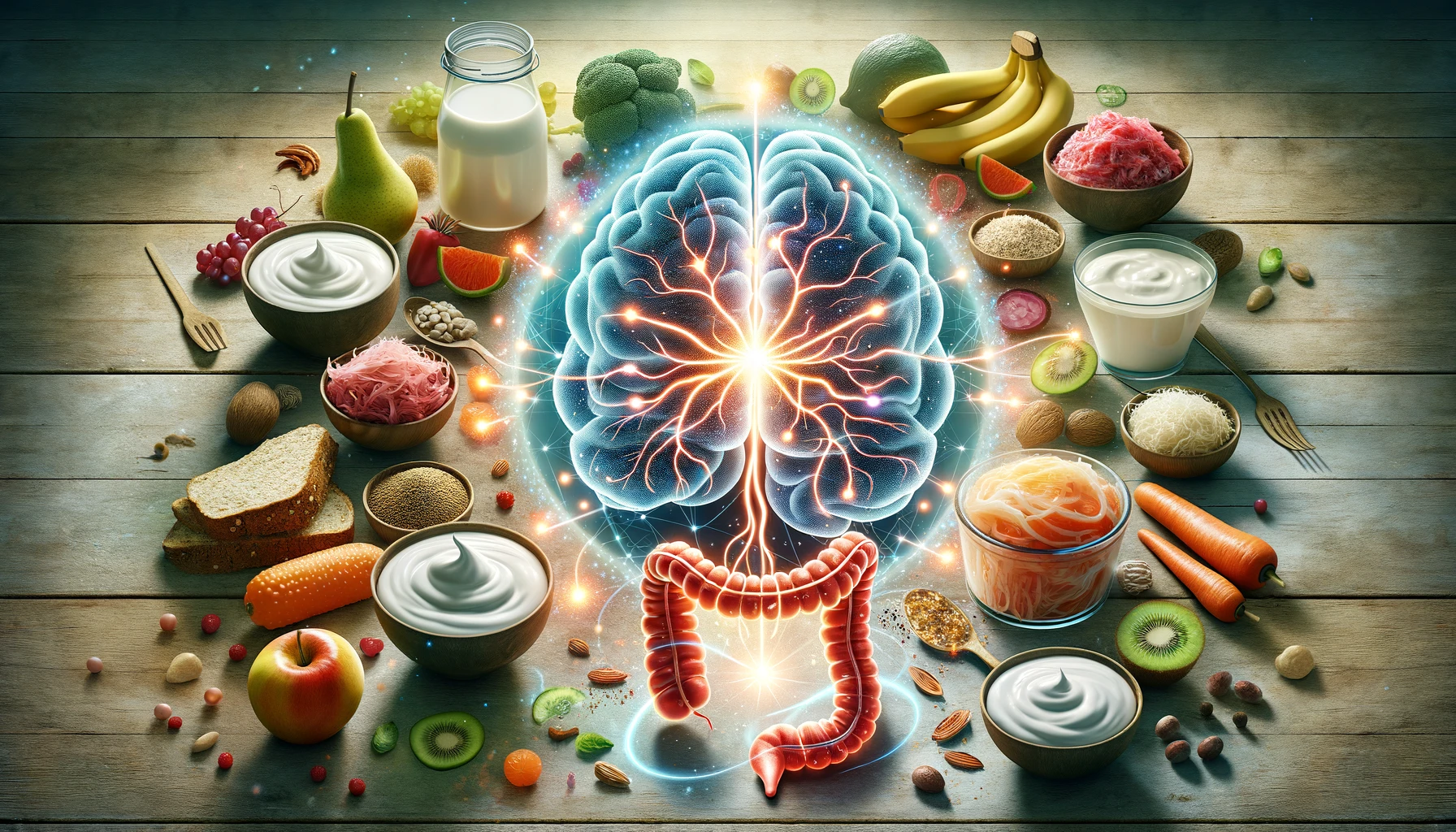
The food you eat does more than just fuel your body – it also has profound effects on your mental health. And, in many cases, it can be part of the solution for issues involving anxiety.
But in order to enjoy the benefits, you have to understand the relationship.
Why Food Matters to Your Mood
Your gut is often called your “second brain” because it produces about 95 percent of the serotonin in your body—a neurotransmitter that helps regulate mood, happiness, and anxiety. This production is highly influenced by the billions of “good” bacteria that make up your intestinal microbiome. These bacteria play an essential role in digesting food and have a significant impact on your body’s serotonin levels.
When your diet is balanced with ample fiber, healthy fats, and nutrients, these microorganisms thrive and produce adequate serotonin to keep your mood steady.
Food impacts neurotransmitters, the chemical messengers that allow neurons (brain cells) to communicate with each other. The food you eat also influences your blood sugar levels, which can have a short-term impact on your mood. High-carb meals, especially those rich in refined sugars, lead to spikes in blood sugar that might boost your mood initially but eventually plunge you into fatigue and irritability as your blood sugar crashes.
On the other hand, foods high in fiber, protein, and healthy fats help stabilize blood sugar levels, which supports a more consistent mood throughout the day.
Food alone isn’t enough to solve mental health issues – it needs to be coupled with the right form of therapy – but it does play an extremely powerful role in regulating your mood and keeping you emotionally balanced.
The Power of Omega-3 Fatty Acids
While some find it surprising, omega-3 fatty acids are a big factor in the brain-gut connection, as these fats are superheroes for your brain. Found in foods like fish (think salmon and sardines), flaxseeds, and walnuts, omega-3s help build and repair brain cells.
More importantly, they play a role in sharpening your memory and improving your mood. Studies have shown that omega-3s can be pretty powerful in fighting depression and might even make antidepressant medications work better.
Antioxidants: The Brain’s Bodyguards
Next up, there’s antioxidants. These are like your brain’s personal bodyguards. They protect your brain cells from damage and reduce inflammation, which can lead to brain health issues.
Foods packed with antioxidants include berries, nuts, dark chocolate (yes, chocolate!), and leafy greens. By regularly eating these foods, you can boost your brain’s defenses against mental decline and mood disorders.
Vitamins for Vitality
Vitamins, especially B vitamins, are crucial for mental health. They help produce brain chemicals that affect mood and other brain functions. Low levels of vitamins such as folic acid and B-12 can lead to depression.
That means, for the good of your mental health, you need to prioritize optimum vitamin intake. To get your B vitamins, turn to whole grains, meat, eggs, and dairy products. A daily bowl of fortified cereal can also be a good source.
Gut Health and Mental Health: What’s the Link?
Now, let’s talk about something really cool – the gut-brain axis. (This is a totally new concept to most people, but has been thoroughly studied and researched by scientists and health professionals.)
The gut-brain axis is the two-way communication between your digestive system and your brain. Ever had a “gut feeling” or felt butterflies in your stomach?
That’s the gut-brain axis at work. The bacteria in your gut actually produce and help manage neurotransmitters like serotonin, which is a key hormone that stabilizes our mood, feelings of well-being, and happiness.
Maintaining a healthy gut contributes to a good mood and mental health. Foods that promote a healthy gut include those rich in fiber like fruits, vegetables, and whole grains, as well as fermented foods like yogurt, sauerkraut, and kimchi, which provide your gut with good bacteria.
Eating Well for Mental Wellness
So, what can you do to harness the power of food for mental health? Here are a few additional tips and suggestions:
- Incorporate a variety of foods into your diet to get a range of nutrients that support brain health.
- Aim for consistency in your meals to keep blood sugar levels stable, which is important for maintaining a good mood.
- Be mindful of gut health, which influences your brain health and emotions. Include plenty of fiber and consider probiotic foods.
- Stay hydrated. Even mild dehydration can affect your mood and energy levels, so keep that water bottle handy.
Adding it All Up
As you can clearly see, what you eat doesn’t just impact how you feel physically – it also has a direct influence on your mood and mental health. That’s why it’s extremely important to eat healthy and be mindful of the kind of diet that you expose your body to.
With some of the tips from this article in mind, take some time to plan out your perfect diet for optimal mind and body health!













